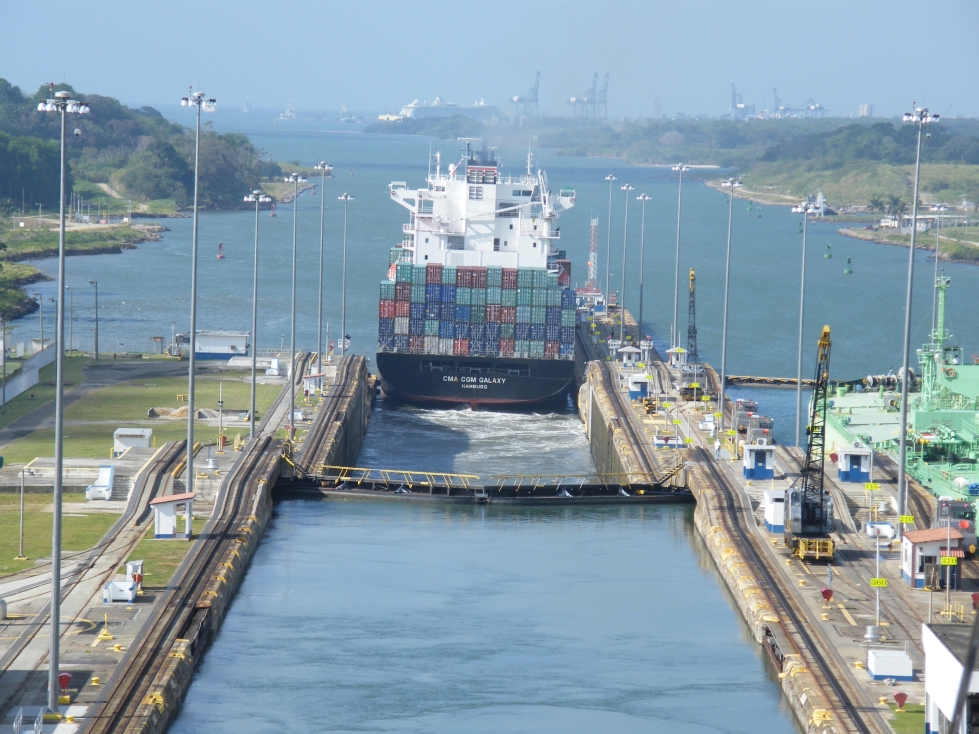The Panama Canal Authority (PCA) has reportedly started holding auctions for ships waiting to pass the canal, with reports of one vessel paying US$2.4M to transit, amid warnings that restrictions at the key waterway could continue for another 10 months, AgriCensus wrote.
Since late July, only 10 vessels/day have been allowed to move through the neo-Panamax locks, according to the 1 September report.
The state-owned ACP, which manages the 80km canal, had only one or two daily slots available for vessels without bookings that were auctioned to the highest bidder, LPG company Avance Gas was quoted as saying in a second quarter earnings report.
According to the company, one bidder had paid US$2.4M for a one-way northbound transit at one auction, on top of a regular toll fee of US$400,000.
Problems with the canal – one of the world’s busiest trade routes linking the Atlantic and Pacific oceans – started several weeks ago prior to the report, as an extended dry season led to falling canal water levels, AgriCensus wrote.
Water levels on the Lake Gatun reservoir have fallen to 79.5 ft (24.23M), compared to a long-term average of 84.9 ft (25.87M), according to 1 September data from the ACP.
Due to low levels, the PCA said only ships with a maximum draft of 44 ft (13.41M) could pass the neo-Panamax locks, to avoid them running to ground on the bottom of the canal.
In late July, the ACP reduced the number of vessels passing through the waterway each day from 36 to 32 – 22 through the Panamax locks and 10 through the Neo-Panamax locks – and had also introduced restrictions on the permitted maximum depth of ships.
This had led to an increasing backlog of vessels waiting to pass through the canal, the report said.
As of 1 September, 116 vessels were waiting to transit through the canal, based on latest ACP data.
Sources told AgriCensus that current waiting times were around 20 to 21 days.
The PCA was quoted as saying the restrictions could remain in place for further 10 months.
Continuing problems at the canal could lead to some charterers choosing alternative routes, Yiannis Parganas, the Head of Research for Intermodal, told AgriCensus.
The situation could also impact US crop exports to Asia which had already become less competitive compared to their Brazilian rivals, the report said.
If freight rates from the USA to Asia continued to increase that could affect agricultural export prices and could make South American crops more attractive for Chinese buyers, AgriCensus wrote.




